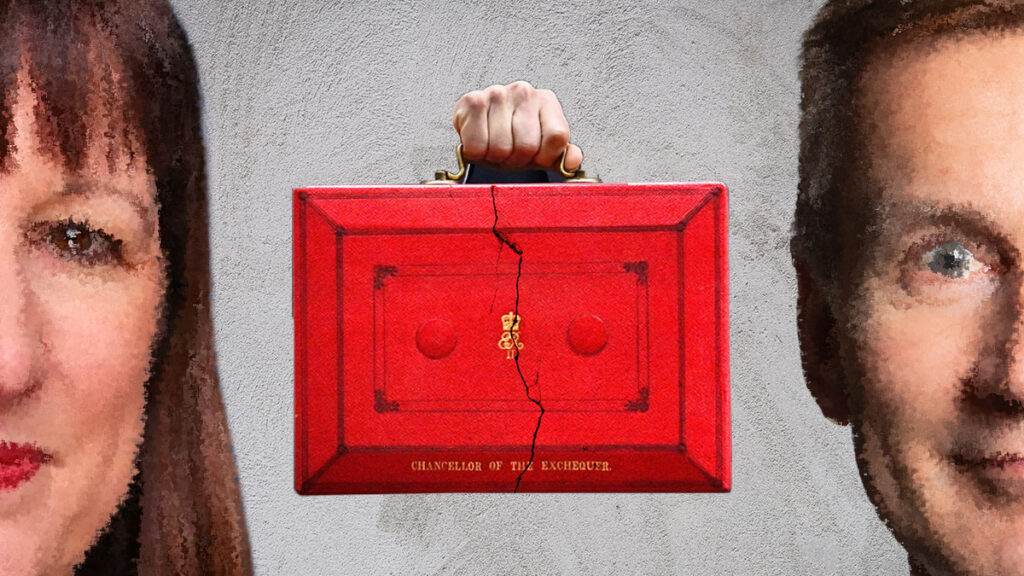What to expect from the 2024 Spring Budget
Cuts to national insurance and income tax, removal of non-domiciled tax rules and changes to lifetime ISAs are all expected in the budget later today

Chancellor Jeremy Hunt will announce his Spring Budget at 12:30 today with many expecting it to be the largest fiscal announcement before the next general election.
Whilst speaking to the BBC’s Sunday with Laura Kuenssberg, Hunt ruled out borrowing to fund tax cuts. “This will be a prudent and responsible budget for long-term growth, tackling inflation, more investment, more jobs and that path to lower taxation as and when we can afford that,” he added.
We’ve collated everything that’s rumoured to be taking place:
National Insurance cut
Prime minister Rishi Sunak strongly hinted there could be further cuts to national insurance rates at the Scottish Tory conference and according to a report by the Times, National Insurance will be cut by 2 per cent in the Spring Budget, taking it from 10 per cent to 8 per cent of pay.
Set to come into effect in April this year, it follows the 2 per cent cut that took place during the autumn statement.
Income tax reduction
The One Nation group, which represents Conservative MPs on the moderate wing of the party, has urged the chancellor to cut direct taxes for working people instead of scrapping inheritance tax.
However, slashing income tax by just 1 per cent would cost £7billion and result in higher tax bills for anyone earning less than £38,000 a year if the freeze on personal allowance thresholds was maintained, according to the Resolution Foundation.
The think tank said cancelling the personal freeze that is planned for 2024-2025 would also cost £7billion. This might be more likely because it would result in more people paying less tax.
The FT reports that Treasury officials were looking at reducing the projected rise in public spending from 2025 onwards to about 0.75 per cent a year, which would release £5billion-£6billion for tax cuts in the Spring Budget. However, Economic thinktank The Institute for Fiscal Studies (IFS) calculates the chancellor will need to find £35billion worth of cuts from public services if he plans to use a reduction in public spending to pay for tax cuts.
Recovery loan scheme extension
Jeremy Hunt will extend the recovery loan scheme for another two years after pleas from the UK’s small businesses, reports Sky News.
First launched in April 2021, the government-backed scheme helps SMEs to access the finance they need to grow and invest, with the government guaranteeing up to 70% of loans of up to £2m to companies with a turnover of less than £45m.
It’s currently set to end in July 2024 but following the extension, will run until 2026.
Removal of non-domiciled tax rules
The chancellor is considering scrapping Britain’s non-domiciled tax rules in a move that would raise an estimated £3.6billion a year, reports the Guardian.
Abolishing the regime is understood to be on a list of revenue-generating options drawn up for the government after economic estimates meant there is less money than expected for tax cuts or spending pledges.
However, removing the non-dom tax regime is a key Labour fiscal policy that Jeremy Hunt has previously criticised.
Fuel duty
Fuel duty is supposed to increase by 5p per litre on March 23rd and then rise again in line with inflation in August. However, according to Sky News, the chancellor is set to extend the 5p fuel duty cut that is currently in place in a move that would cost the Treasury around £5bn to implement.
The fuel duty cut was first introduced in 2022 and extended for 12 months in March 2023. It now looks set to be extended for another year.

Local council funding
Eight English local councils have declared themselves effectively bankrupt since 2018 and fears remain that others may soon follow suit.
Nearly one in ten councils have warned they will go bust in the next 12 months, according to the Local Government Information Unit’s (LGIU) annual poll of local authority leaders and top managers.
Michael Gove has previously confirmed local authorities in England will receive an extra £600million in funding, which would mean an increase in core spending power of up to £4.5billion. However, The Guardian reports that almost half of this amount is based on the assumption every local authority in England raises council tax by the maximum 4.99 per cent in April.
Child benefit threshold increase
Jeremy Hunt is considering an increase to the £50,000 threshold that claimants start to lose child benefit, reports the Times.
Currently, claimants start losing some of their child benefit once they start earning £50,000 or more. For each £100 that parents receive over this threshold, they must repay 1 per cent of the child benefit they receive, with child benefit being completely withdrawn once they earn £60,000.
Inheritance tax scrapped
Back in December, the Telegraph reported that the government was considering abolishing inheritance tax (IHT) in the spring.
However, Sky News reports the chancellor might consider changing the thresholds to account for rising house prices or change the rules on gifting thresholds. Inheritance tax is currently charged at 40 per cent and applies to estates worth more than £325,000.
IHT raises around £7billion for public services with 4 per cent of the UK population paying it.
However, the Times reports Rishi Sunak is moving away from the idea of IHT cuts after considering the small proportion of voters it impacts and amid criticism from Labour that it only benefits the wealthy.
99 per cent mortgages
The Financial Times reports that 99 per cent mortgages might be introduced, meaning buyers can purchase homes with only a 1 per cent deposit. The government would act as a loan backer under the new scheme.
Housing secretary Michael Gove told the Times in December that his party would “definitely” have a new offer in place for aspiring homeowners before polling day.

Stamp duty cuts
The IFS has said cutting stamp duty on the purchase of properties and shares should be top of the list of potential tax cuts in the Spring Budget.
Currently, stamp duty is paid when purchasing any property priced higher than £250,000.
Rather than focusing on attention-grabbing cuts to income tax, the thinktank argues the chancellor should focus his attention on “particularly damaging” taxes, such as stamp duties.
New research commissioned by the Centre for Policy Studies (CPS) and undertaken by independent consultancy Oxera found that scrapping stamp duty on buying shares could increase the overall tax take by around £600million due to its positive impact on growth. It could also lead to a nearly £7billion increase in business investment from FTSE-listed firms, the study found.
Changes to lifetime ISAs
Jeremy Hunt is considering cutting the exit penalty of lifetime ISAs from 25 per cent to 20 per cent and lifting the property limit from £450,000 to £500,000, according to a report from Politico.
LISAs were first introduced in 2017 and were designed to help people aged between 18 to 39 buy their first home or save for retirement but are yet to be amended.
For many first-time buyers wishing to purchase a property worth more than £450,000, the current property limit has meant they’ve been unable to use the LISA and the 25 per cent withdrawal charge meaning savers actually lost money.
Tax on vapes
According to the Times, a new tax on vapes is being considered for the upcoming Spring Budget.
Vaping products are currently subjected to VAT but not to a dedicated levy like tobacco. However, the new duty will be levied on the liquid used in vapes, with higher tax rates for products with more nicotine.
To ensure vaping remains cheaper, tobacco duty, which rose 2 per cent in November last year, could rise again. A treasury analysis suggests increasing it again and the vape tax could eventually raise around £500million a year.

What are business groups asking for?
The Federation of Small Businesses (FSB)
The UK’s largest membership organisation for small businesses and the self-employed has requested the Employment Allowance be raised from £5,000 to £6,500.
The FSB says this will enable a small employer to hire four staff on the £11.44 National Living Wage before having to pay the 13.8 per cent jobs tax, which was the case when the allowance was originally designed.
Confederation of British Industry (CBI)
The CBI represents 190,000 businesses and wants to push the government to continue making progress on the initiatives announced in last year’s Autumn Statement.
Their submission for the upcoming Spring Budget had three top recommendations for the government:
- Take further steps to tackle labour shortages
- Remove barriers to growth and establish a sound business environment
- Invest in the UK’s high-growth industries
BusinessLDN
BusinessLDN, which represents some of London’s largest companies, is calling on the government to urgently clarify funding arrangements for childcare providers ahead of the April 2024 deadline and then look at a range of other measures to tackle the cost and availability of childcare, while maintaining its quality.
The not-for-profit advocacy group recently co-authored the No Kidding: How Transforming Childcare Can Boost The Economy report, which shows that increasing the employment rate among parents with children under the age of five by 250,000 could increase GDP by up to £11.3billion per annum, potentially boosting the UK’s public finances by up to £3.2billion each year.
What do SMEs want to see from the Spring Budget?
According to a survey by SME funder Bibby Financial Services, 61 per cent of respondents want to see further tax incentives, such as reduced corporation tax, from the next government.
The survey of 1,000 UK SMEs also found that 37 per cent believe the Labour Party best serves the interests of businesses, compared to 22 per cent that believe the Conservatives are the party for business. 20 per cent were unable to identify a favoured political party.



